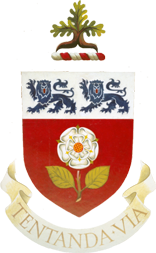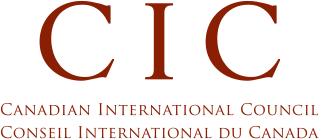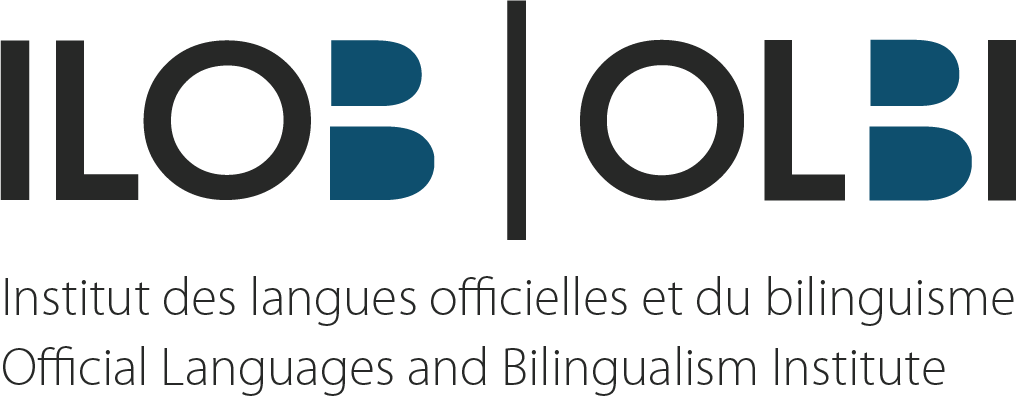
York University, also known as YorkU or simply YU, is a public research university in Toronto, Ontario, Canada. It is Canada's fourth-largest university, and it has approximately 55,700 students, 7,000 faculty and staff, and over 325,000 alumni worldwide. It has eleven faculties, including the Faculty of Liberal Arts & Professional Studies, Faculty of Science, Lassonde School of Engineering, Schulich School of Business, Osgoode Hall Law School, Glendon College, Faculty of Education, Faculty of Health, Faculty of Environmental and Urban Change, Faculty of Graduate Studies, School of the Arts, Media, Performance and Design, and 28 research centres.

John Parmenter Robarts was a Canadian lawyer and politician who served as the 17th premier of Ontario from 1961 to 1971. He was a member of the Progressive Conservative Party of Ontario.

Comparative literature is an academic field dealing with the study of literature and cultural expression across linguistic, national, geographic, and disciplinary boundaries. Comparative literature "performs a role similar to that of the study of international relations but works with languages and artistic traditions, so as to understand cultures 'from the inside'". While most frequently practised with works of different languages, comparative literature may also be performed on works of the same language if the works originate from different nations or cultures in which that language is spoken.
American studies or American civilization is an interdisciplinary field of scholarship that examines American literature, history, society, and culture. It traditionally incorporates literary criticism, historiography and critical theory.

The University of Winnipeg is a public research university in Winnipeg, Manitoba, Canada, that offers undergraduate faculties of art, business and economics, education, science and kinesiology and applied health as well as graduate programs. UWinnipeg's founding colleges were Manitoba College and Wesley College, which merged to form United College in 1938. The University of Winnipeg was established in 1967 when United College received its charter. The governance was modeled on the provincial University of Toronto Act of 1906 which established a bicameral system of university government consisting of a senate (faculty), responsible for academic policy, and a board of governors (citizens) exercising exclusive control over financial policy and having formal authority in all other matters. The president, appointed by the board, was a link between the bodies to perform institutional leadership.
The Faculty of Information is an undergraduate and graduate school that offers the following programs: a Bachelor of Information, a Master of Information (MI), a Master of Museum Studies (MMSt), and a PhD in information studies, as well as diploma courses. As a member of the iSchool movement, the Faculty of Information takes an interdisciplinary approach to information studies, building on its traditional strengths in library and information science, complemented by research and teaching in archives, museum studies, user experience, information systems and design, critical information studies, culture and technology, knowledge management, digital humanities, the history of books, data science and other related fields. It is located on St. George Campus, in the Claude Bissell building, at 140 St. George Street, which is attached to the John P. Robarts Research Library and the Thomas Fisher Rare Book Library.
The Munk School of Global Affairs and Public Policy at the University of Toronto is an interdisciplinary academic centre with various research and educational programs committed to the field of globalization. It offers master's degrees in Global Affairs, Public Policy, European, Russian, and Asia-Pacific studies. The Munk School is a member of the Association of Professional Schools of International Affairs, a group of schools that educate students in international affairs. Admission to the Munk School is highly competitive.

The University of Erfurt is a public university located in Erfurt, the capital city of the German state of Thuringia. It was founded in 1379, and closed in 1816. It was re-established in 1994, three years after German reunification. Therefore it claims to be both the oldest and youngest university in Germany. The institution identifies itself as a reform university, due to its most famous alumnus Martin Luther, the instigator of the Reformation, who studied there from 1501 to 1505. Today, the main foci centre on multidisciplinarity, internationality, and mentoring.

Morton Beiser, CM, MD, FRCP is a Canadian professor, psychiatrist and epidemiologist known for his research in the fields of immigration and resettlement.
Charles Asher Small is a Canadian intellectual, the founder and director of the Institute for the Study of Global Antisemitism and Policy the first international interdisciplinary research center dedicated to studying antisemitism with a contemporary focus.
Chiropractic in Canada is licensed at the provincial and territorial level. Council on Chiropractic Education of Canada accredits educational programs.

The Van Leer Jerusalem Institute (VLJI) is a center for the interdisciplinary study and discussion of issues related to philosophy, society, culture, and education. The Institute was established in order to create a body of knowledge and discourse which gives expression to the wide range of disciplines and opinions in Israel. The contribution of a core of renowned scholars facilitates the implementation of reforms and new approaches in various social spheres.

The Centre for Research in the Arts, Social Sciences and Humanities (CRASSH) is an interdisciplinary research centre within the University of Cambridge. Founded in 2001, CRASSH came into being as a way to create interdisciplinary dialogue across the University’s many faculties and departments in the arts, social sciences, and humanities, as well as to build bridges with scientific subjects. It has now grown into one of the largest humanities institutes in the world and is a major presence in academic life in the UK. It serves at once to draw together disciplinary perspectives in Cambridge and to disseminate new ideas to audiences across Europe and beyond.

The Canadian International Council is a Canadian think tank on foreign relations. It is an independent, member-based council established to strengthen Canada's role in international affairs. Its goal is to advance debate on international issues across academic disciplines, policy areas, and economic sectors.
Stanford University has many centers and institutes dedicated to the study of various specific topics. These centers and institutes may be within a department, within a school but across departments, an independent laboratory, institute or center reporting directly to the Dean of Research and outside any school, or semi-independent of the University itself.
Daniel Drache is a scholar in Canadian and international political economy, globalization studies, communication studies, and cultural studies. He is recognized as having made important contributions to comparative and interdisciplinary debates on policy, globalization, border security, and the impact of new information and communication technologies on political mobilization and citizenship. He is also known for his critique of market fundamentalism. In Canada he is also credited with reviving the work of foundational political economist Harold Innis within the academy. Drache is a professor emeritus political science and senior research scholar of the Robarts Centre for Canadian Studies at York University in Toronto, Canada.
André H. Caron is a Canadian Communications scholar whose research focuses predominantly on young people and media, and the appropriation of emerging technologies in society. Through his books and research projects, he examines social, cultural and policy issues, as well as the overall influence that traditional and new media have on family and the lives of children and youth.
Verna Jane Kirkness, is a Cree scholar, pioneer and lifelong proponent of indigenous language, culture and education who has been influential in Canadian indigenous education policy and practice. She is an associate professor emeritus at the University of British Columbia and resides in Winnipeg. Kirkness has received numerous awards for her outstanding contributions spanning five decades including the Order of Canada in 1998. Kirkness had an important impact on Canadian indigenous education policy and practice. She is the author of "numerous books and articles on the history of Indigenous education." The University of Manitoba's Verna J. Kirkness Science and Engineering Education Program was established in 2009 and in November 2013 a native studies colloquium honoured her as a national leader in education.

The Official Languages and Bilingualism Institute (OLBI) is a language institution affiliated with the University of Ottawa, in Ottawa, Canada. Its mission is to promote excellence and innovation in the fields of bilingualism and language acquisition, thus helping the University fulfill its role to "further bilingualism and biculturalism and preserve and develop French culture in Ontario.










